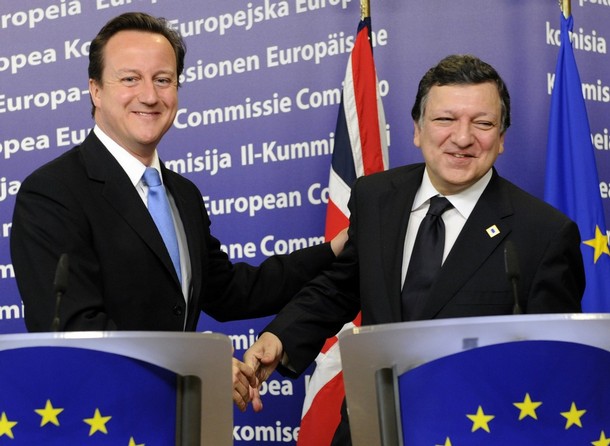
From Anand Menon, Chatham House: The British government staunchly opposed plans for the creation of an EU military headquarters because of fears that this would duplicate work already done in NATO. Its lukewarm attitude towards the European Defence Agency (EDA) – created to help improve military capabilities – has stymied the Agency’s effectiveness. …
On issues as varied as the Kyoto Climate Treaty, the Ottawa Treaty on Land mines, the war in Kosovo, the attack on Afghanistan, the Middle East Peace Process, the Iraq war and subsequent occupation, or the holding of British captives at Guantanamo Bay, the British government failed to exert any significant influence over Washington. …
Similarly, there is room for scepticism as to whether NATO really remains the organisation most critical to the maintenance of Britain’s security. The British National Security Strategy stresses numerous threats, ranging from terrorism, to weapons of mass destruction, to conflicts, pandemics and crime. It also emphasises the non-military sources of these, including climate change, energy dependence, poverty and globalisation. …
ESDP is not a threat to NATO. Consequently, continued British opposition to an independent European headquarters is counter productive. Such an institution could, at best, improve EU reaction times and its capacity to coordinate between different elements of combined civilian-military missions. …
Concessions on the headquarters issue could usefully be tied to real progress in developing European civilian and military capabilities. As a state that bears a disproportionate burden in Europe’s military efforts, Britain stands to gain more than most from an improvement in the military capabilities of its partners.
The chronic fragmentation of the European defence market means that, despite spending considerable sums on defence, the EU is not getting sufficient ‘bang for its buck’. Ensuring the more effective functioning of the EDA could help achieve the British objective of developing more capable European forces. Given the competitiveness of its defence industries, Britain also stands to gain more than any other member state from a liberalisation of the market.
Anand Menon, Associate Fellow, Europe, Chatham House, Professor, West European Politics, University of Birmingham. (photo: Getty)
Image: getty%206%2024%2010%20David%20Cameron%20Jose%20Manuel%20Barroso.jpg
